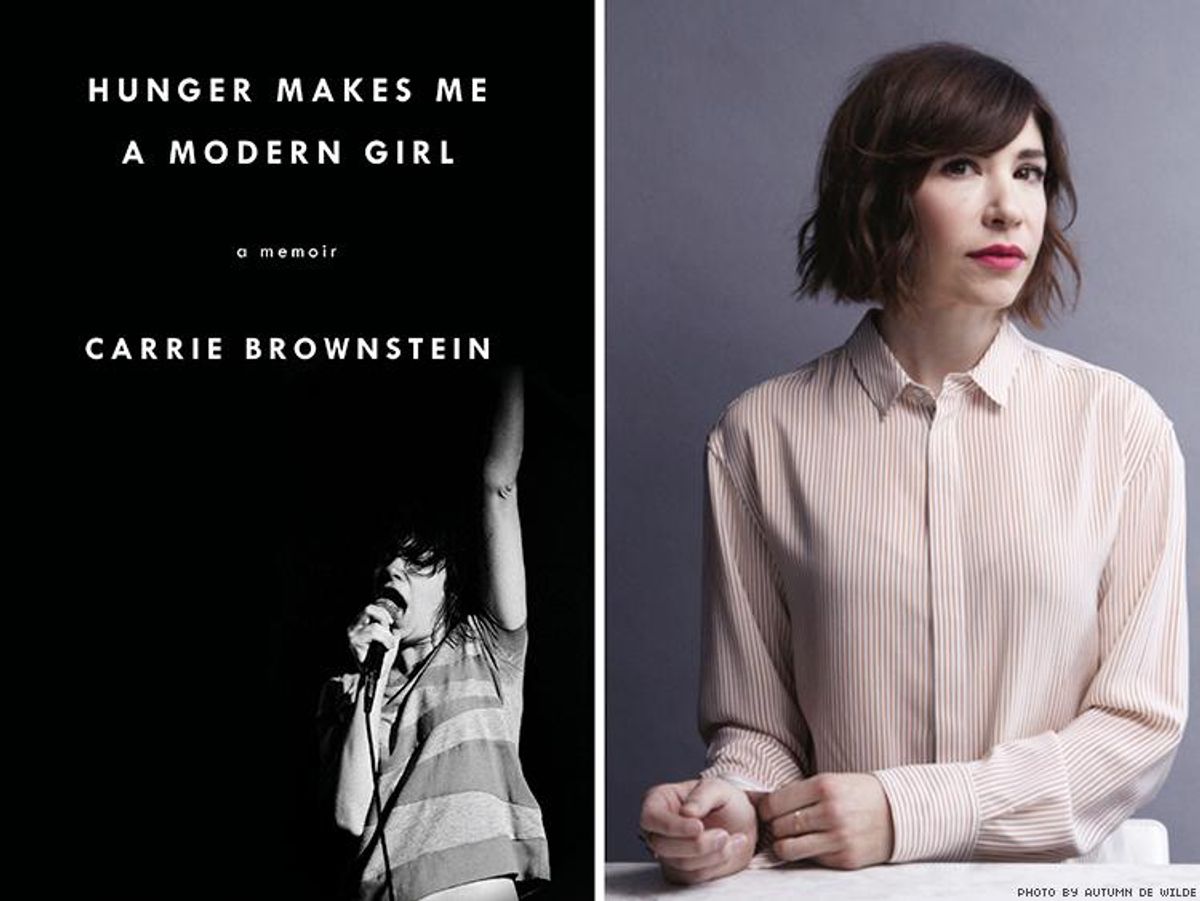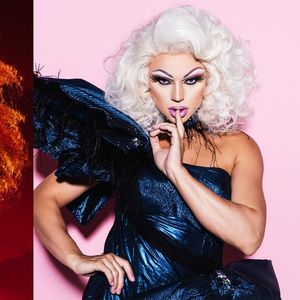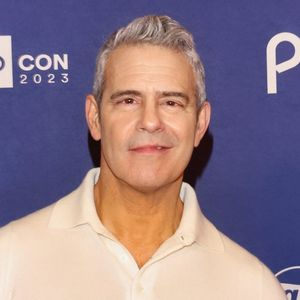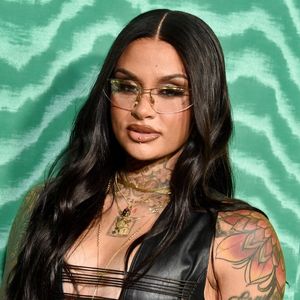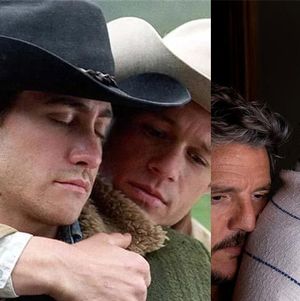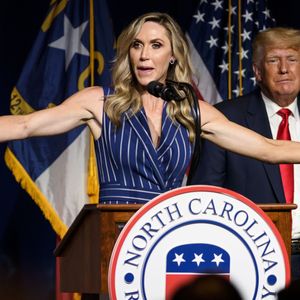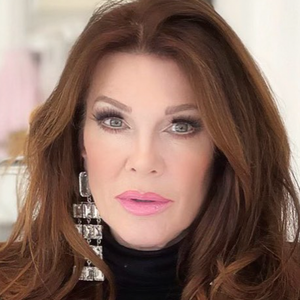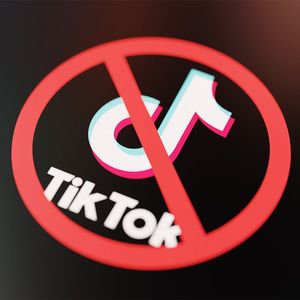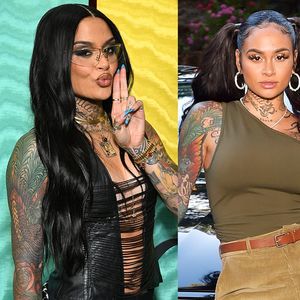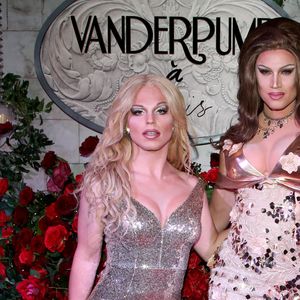The stakes must always be high, or else Carrie Brownstein isn't interested.
Known to music fans as the guitarist and singer for indie rock band Sleater-Kinney, she is most recognized for her role cocreating and starring on the sketch-comedy show, Portlandia. A former contributor to NPR Music, the singer and actress is now the author of a memoir called Hunger Makes Me a Modern Girl.
In the book, Brownstein describes the riot grrrl music scene, making music and touring with Sleater-Kinney, the struggles of growing up with an anorexic mother, and her father coming out at age 65.
Many LGBT people can relate to the experience of looking back and asking themselves, Were there telltale signs I was gay all along and I was just too naive to acknowledge them? Relatives may even say things like, "I knew it. I knew it all along," as if being who you are can somehow be part of a queer checklist.
Brownstein herself saw no clues about her dad: "Only in retrospect can I find clues to my father's gayness." I ask Carrie about this over the phone while she is in Los Angeles, on the day she is getting ready to share the stage with Amy Poehler at a local bookstore to discuss Hunger Makes Me a Modern Girl.
Did Brownstein feel a closer connection to her father after he came out to her? Given that Brownstein was out at the time and part of the queer-friendly, feminist riot grrrl scene, her answer is surprising. "It's so easy for people on the outside to try to posit personal experiences into a political context, and terms like 'queer identity' -- sure, I can look from the outside and think that, but from a personal perspective, no."
Brownstein felt closer to her father after discovering his truth, but it wasn't because she's also queer.
"I know that the personal is political. In relation to my father, I wasn't couching it in terms of, well, now we share a 'queer identity' -- that seems like a slightly political way of looking at it. I was just really grateful he was happier."
Many celebrities have come out on their own terms recently, such as Ellen Page, Ricky Martin, and Michael Sam. But Brownstein didn't have that luxury. Sleater-Kinney was on the rise in 1996, and Spin was the biggest national magazine to profile the group. Brownstein and her bandmate Corin Tucker were undoubtedly excited to be featured, but what landed in their hands after publication is not what they expected. She received a phone call from her father saying he read the profile, which outed her by mentioning the two bandmates had dated.
Neither Corin nor Brownstein had told their parents or families, and at the time, Brownstein admits that, "I didn't think or know if I was gay; dating Corin was just something that had happened."
She felt "splintered and smashed" that day: "I had not yet figured out who I was, and now I was robbed of the opportunity to publicly do so; to be in flux."
Although her sexual identity was revealed in a way that she wasn't yet ready to publicly acknowledge, she saw no need for turning back or denying what was written about her.
"From that point on, any denial or rescinding would seem like backpedaling or shame to a group of people whom I didn't want to alienate. Yet I felt it was unfair to be labeled when I had yet to find a label for myself, and when binary, fixed identities held no meaning or safety for me."
Given that experience of being outed in a national publication, do celebrities have a responsibility to be out? No celebrity owes the public their privacy, but there's no denying how powerful it is to see an actress like Ellen Page walking down the red carpet with her girlfriend after she's spoken about how difficult it was to be closeted in Hollywood.
But Ellen Page is not Carrie Brownstein, and every public figure has to come to that decision on their own terms. Brownstein was not given the opportunity to make that decision for herself.
"Each person approaches the idea of being out in a different way. You don't owe anybody anything, essentially. If you operate in the world as an actor, writer, creator, and what you owe people is to do well and to be a good writer, be a good director, be a good producer, be a good actor, and be a good person."
The evening of our phone call, Brownstein made headlines after marrying a same-sex couple at the book event with Poehler. It was a touching moment -- seeing Brownstein happily celebrating the union of two women with an earnest speech about love and compassion.
A week later, Brownstein is on the Out 100, a list compiled by Out (a sister publication of The Advocate) celebrating the most influential and powerful LGBT people -- a list that includes Jennicet Gutierrez, Lee Daniels, and Caitlyn Jenner.
The singer-actress recognizes the impact of being out, but she doesn't want the public to assume that it's something "owed" to them by public figures. "I see the importance of visibility and think that it can be corrosive to be hidden, but I don't think anybody 'owes' anything. I think that kind of terminology is dangerous -- this 'owing.' I think we need to change the conversation from 'Do you owe me this?' to 'Are you living your best self?'"
There are artists such as Mykki Blanco, Angel Haze, and Le1f, who are usually labeled as "queer" artists. Brownstein is keenly aware that the adjective precedes the word artist. No one wants to be known for just one label, and no career can be defined by any single label.
"I certainly am unashamed of the identifier 'queer,' but I don't know if that is the best description of Portlandia or the best description of Sleater-Kinney or the best description of this book. What is that describing? I am unashamed of that identity, but my question for someone describing my work -- is that the best description for it? It's not about trying to distance myself from that, it's just finding more sophisticated, nuanced of ways of writing and critiquing my work."
Driven to constantly challenge herself, Brownstein created Portlandia with Fred Armisen and Jonathan Krisel after taking a creative break from Sleater-Kinney. That ambition continues to drive her forward, as she appears in Amazon's lauded Transparent series, has a cameo in the lesbian romance film Carol, and promotes the new season of Portlandia, debuting in January. In her memoir, she writes, "I still don't understand how you can play a show, or create any kind of work or performance, without raising the stakes relatively high, or with no stakes at all."
